Another Iranian MP urges nuclear policy shift
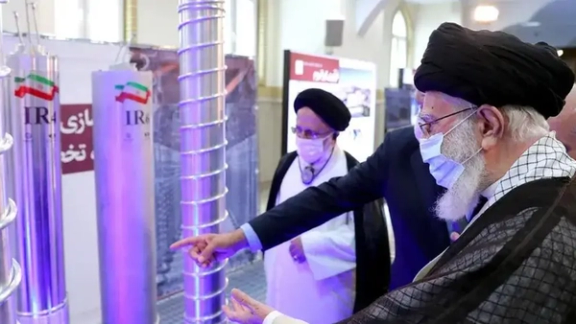
Iranian officials are intensifying calls for a reconsideration of the nation’s defense strategy, with some lawmakers advocating for nuclear armament.

Iranian officials are intensifying calls for a reconsideration of the nation’s defense strategy, with some lawmakers advocating for nuclear armament.
“The Iranian nation must equip itself with all the weapons that its terrorist enemies, namely the US and Israel, possess,” said Mahmoud Nabavian, a representative for Tehran in the parliament during Sunday’s parliamentary session.
On Saturday, Ahmad Naderi, another parliamentarian, echoed the sentiments in an interview with local media, saying, “Our adversaries possess extensive and ready-to-deploy arsenals of nuclear warheads, leaving Iran at a significant strategic disadvantage.”
He criticized the economic and strategic costs of Iran’s existing nuclear program, adding that the absence of nuclear deterrence has rendered it ineffective.
The statements align with a broader push by 39 lawmakers urging Iran’s Supreme National Security Council to reassess its current approach.
Iranian officials have long maintained that their nuclear program is peaceful, citing a fatwa from Supreme Leader Ali Khamenei prohibiting weapons of mass destruction. However, Kamal Kharrazi, a senior advisor to Khamenei, recently hinted that the decree could be reconsidered.
Kharrazi also suggested that Iran might soon abandon its self-imposed limit on missile range, signaling a potential shift toward developing intercontinental capabilities. “If the Islamic Republic of Iran faces an existential threat, we may have no choice but to adjust our military doctrine,” he said earlier this month.
Regional tensions underpin the debates. Israel’s intensified military actions, including a recent airstrike on Iran which destroyed swathes of Iran's air defences in addition to damaging a nuclear research facility, have heightened Tehran’s sense of vulnerability. This escalation followed Iran’s October 1 missile attack on Israel, prompting retaliatory strikes by Israel that killed four Iranian soldiers.
Tehran's uranium stockpile, enriched to 60%, could be further refined to weapons-grade 90% within approximately two weeks. Such a doctrinal shift would likely signal Iran's readiness to pursue nuclear weapons if Israeli military actions jeopardize its vital interests.
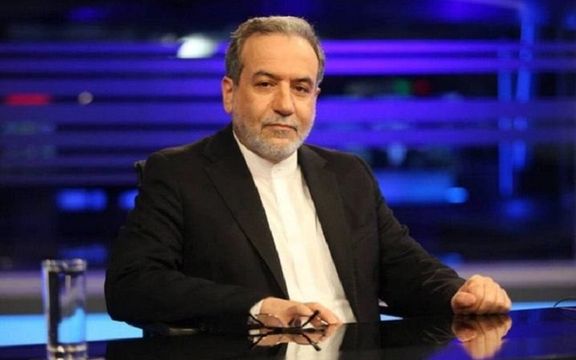
Foreign Minister Abbas Araghchi has faced accusations of lying to appease Iran's ultra-hardliners after his emphatic denial on Saturday of reports about a meeting between Iran's UN ambassador and Elon Musk.
The denial has widely been interpreted as a reaction to hardline Kayhan newspaper’s Saturday attack on the foreign policy apparatus for the meeting.
In an article titled “Secret Meeting with Trump’s Representative: Naivety or Treason,” Kayhan accused Iran’s reformists and “agents of the West’s war against Iran” of laying the groundwork for negotiations with the United States, which it referred to as the “terrorist regime,” through such actions.
The newspaper is financed by Supreme Leader Ali Khamenei's office and overseen by ultra-hardliner Hossein Shariatmadari, a Khamenei appointee whom reformists consider their sworn enemy.
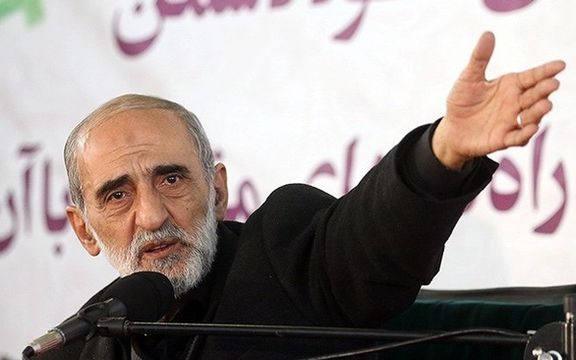
“Dear Mr. Araghchi, [the Iranian] people’s stances should be your yardstick not Kayhan newspaper’s headlines,” Mohammad-Ali Abtahi, a former reformist vice president, tweeted Sunday.
Abtahi criticized the foreign policy apparatus for staying silent for nearly three days about the meeting—a topic widely discussed with interest and seen by some as a potential step toward easing US sanctions. He noted that officials only issued a denial after Kayhan launched its attack on the move.
“Stay true to being Pezeshkian’s and the people’s foreign minister,” Abtahi wrote, urging Araghchi not to shape his positions based on reactions from ultra-hardliners. He argued that the public voted for Masoud Pezeshkian, not his ultra-hardliner rival Saeed Jalili.
“There is nothing more pathetic than a government adjusting and announcing its positions, confirmations, and denials based on the threats and attacks of pulp media and pressure groups,” Hossein Selahvarzi, a former president of Iran's Chamber of Commerce, protested in a tweet Sunday.
The report of the rare meeting was welcomed not only by reformist media—one outlet even dubbing it “the Elon channel [for talks]”—but also by some moderate conservatives.

“The meeting could mark the beginning of a new path in our country’s foreign policy,” the conservative Jomhouri Eslami newspaper wrote on Saturday.
In a live interview broadcast on state television Saturday evening, Araghchi denied reports of a meeting between Ambassador Amir-Saeid Iravani and Trump advisor Elon Musk. The meeting was first reported by The New York Times on Thursday and later corroborated, with minor variations, by the Associated Press and CBS News.
The Iranian foreign minister called the report a fabricated scenario possibly aimed at testing Iran's reaction. After the denial, Shariatmadari thanked Araghchi on Sunday, but insisted that the denial of what he called "devastating news" came too late.
Foreign Ministry Spokesman Esmaeil Baghaei had “categorically” denied the meeting in what appeared to be a brief exclusive interview with the official news agency IRNA earlier Saturday.
Neither Musk nor President-elect Donald Trump's team have commented on the meeting. Skeptical critics from across the political spectrum argue, that this is proof the meeting had really taken place and the foreign ministry’s “categorical” denial could not be trusted.
“The public has every right to suspect that the meeting did take place but was intended to remain confidential, and that our Foreign Ministry spokesperson denied it only because the American side complained about the leak,” tweeted Mehdi Ghasemzadeh, a hardliner commentator and social media activist, on Saturday.
He also argued that the delay in refuting the New York Times report had helped establish the “American media’s narrative” on the matter.
A former official of Mahmoud Ahmadinejad’s government, Mohammad-Javad Mohammadzadeh, also suggested in a tweet that the foreign ministry’s denial of the meeting was false and cited Araghchi’s “correction” of a Pezeshkian remark about Iran's preparedness to reduce tensions with Israel during his UNGA visit in New York in September as another example of false denials of Pezeshkian’s government.
Others have noted that false denials by Iran's foreign policy apparatus are not unprecedented, citing several instances in recent years. These include the denial of Israel’s removal of a massive cache of nuclear documents from a facility near Tehran in 2018, the refutation of reports about secret talks in Oman in 2013 between Supreme Leader Ali Khamenei’s foreign policy adviser Ali-Akbar Velayati and the US, and the denial of the Revolutionary Guards’ active involvement in the Syrian war alongside Bashar al-Assad's forces in 2011.
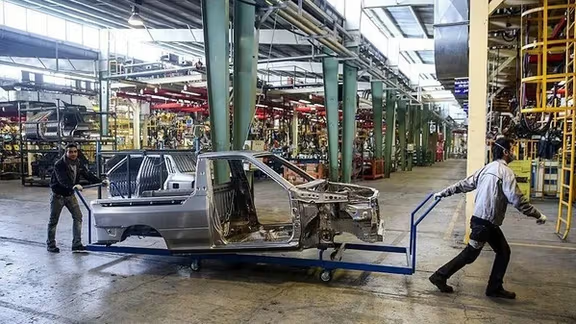
An Iranian state-owned car assembly plant in Syria has closed after nearly 20 years, marking yet another blow to Tehran’s economic ambitions in the war-torn country, where it continues to maintain a significant military presence.
The head of Iran-Syria chamber of commerce, Saeed Aref announced that Saipa, the sole Iranian automaker active in Syria, has ceased production, and no other Iranian factories in the country have become operational, citing unresolved issues between the two countries.
"Iranian companies are still active in providing infrastructure for Syrian industries, exporting technical and engineering services, and carrying out essential and specialized infrastructure repairs," he added.
The announcement comes as Supreme Leader Ali Khamenei’s special representative, Ali Larijani, visited Damascus and Beirut, signaling ongoing efforts to strengthen Iran’s regional influence. However, Iran’s economic footprint in Syria remains disproportionately small despite its costly military involvement during the civil war.
The story of Saipa’s factory in Syria began during the Mohammad Khatami administration in 2004, with construction initiated as part of an ambitious bilateral project.
By 2007, the Pride model’s production line was inaugurated in Homs in the presence of Syrian President Bashar al-Assad. The project, dubbed Siveco, saw Saipa owning 80% of the company while the Syrian government held a 20% stake.
During Mahmoud Ahmadinejad’s presidency, Saipa’s Syrian operations became emblematic of the Islamic Republic’s broader industrial ambitions abroad, with plans to produce up to 15,000 vehicles annually.
A similar initiative by Iran Khodro aimed to establish a factory in Syria in 2009. Yet, these ventures struggled to achieve success as civil war began in 2011, and repeated attempts to reach profitability largely faltered.
Iran’s economic struggles in Syria are accentuated by its massive financial outlays during the civil war. In 2020, Heshmatollah Falahatpisheh, a former member of Iranian Parliament’s National Security and Foreign Policy Committee, estimated that Iran spent $20 to $30 billion supporting Bashar al-Assad’s regime.
"We may have given $20 to $30 billion to Syria, and we need to get it back. This nation’s money was spent there," he said. Others have put the figure at more than $50 billion.
Despite this significant investment, Iran’s share in Syria’s post-war economy remains minimal. Mohammad Amirzadeh, Vice President of Iran’s Chamber of Commerce, lamented in 2021 that weak economic diplomacy had reduced Iran’s share in the Syrian market to just 3%, compared to Turkey’s dominant 30%.
But the real reasons might be economic, as Syrians prefer to deal with free-market economies with competitive quality and price, rather than Iran's government-controlled and isolated economy.
The shuttering of Saipa’s factory epitomizes the Islamic Republic’s inability to capitalize on its investments in Syria. While Turkey and other players secure substantial shares of the Syrian economy, Iran faces diminishing returns despite its critical role in supporting Assad during the war.
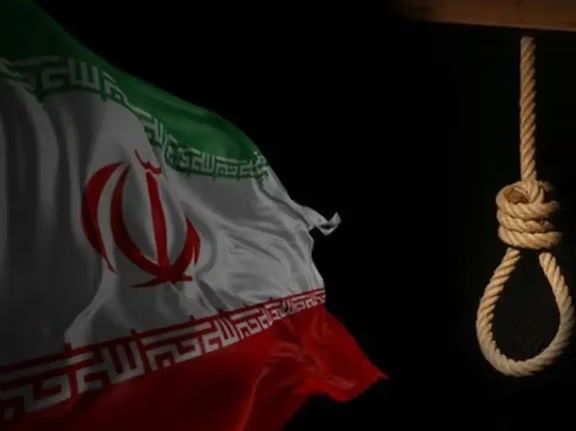
At least 711 people have been executed in Iran since January, prompting female political prisoners at Evin prison in Tehran to call on authorities to stop issuing death sentences.
Norway-based Iranian rights group Hengaw on Saturday said 13 of the 711 executions the group has documented this year were political prisoners. The group also documented 21 fatalities in Iran’s prisons in 2024, including four deaths of political detainees and eight deaths attributed to torture.
“What we are experiencing is a tsunami of executions; it’s shocking and horrifying,” women’s rights activist Mina Khani from Hengaw told Iran International English on Saturday.
Khani expressed concern that, if executions continue at this rate, Iran’s death toll could approach 1,000 by year’s end.
“People at the height of the Woman, Life, Freedom movement could never have imagined that, in the shadow of a regional war partly driven by the Islamic Republic, there would be such killings,” Khani said.
Female prisoners urge end to death sentences
Death sentences continue to provoke resistance from political prisoners and activists. On Saturday, a group of female detainees in Tehran’s Evin Prison issued a letter calling on the public to prevent the Islamic Republic from “sacrificing lives in its vendetta against freedom and equality movements.”
Last week, Iran’s judiciary issued death sentences for six protestors accused of allegedly killing a government Basij militia member during the 2022 protests—a conviction that rights groups, including the Center for Human Rights in Iran (CHRI), have condemned for due process violations, torture-induced confessions, and insufficient evidence.
Rights groups say there are currently 42 political prisoners at risk of execution across Iran's prisons.
Student jailed for opposing dissident rapper's death sentence
In a further sign of Iran’s crackdown on dissent, student activist Khashayar Sefidi was transferred to Evin Prison on Saturday to serve a one-year sentence. Sefidi, who had opposed the death sentence of dissident rapper Toomaj Salehi, was charged with “propaganda against the Islamic Republic.” In a video before his transfer on Saturday he said, "I felt it was my duty, as a member of the community and a citizen, to protest against Toomaj Salehi’s death sentence and not remain silent in the face of this injustice."
Salehi, detained in September 2021 for releasing his protest song “Mouse Hole,” was arrested again in October 2022 during the Woman, Life, Freedom protests. Although his death sentence was overturned by Iran’s Supreme Court in June, Salehi remains imprisoned.
Sefidi’s case reflects a broader pattern of repression, as Iran’s judiciary continues to punish those protesting against executions. Nobel Peace Prize laureate Narges Mohammadi was recently given an additional six-month prison sentence after she protested the execution of another political prisoner in Evin's women’s ward, according to the Free Narges Coalition. The group reported that Mohammadi, already serving a lengthy sentence, was charged on October 19 with “disobeying and resisting orders” after her August protest.
Iran hangs 12 in one day amid rise in drug-related executions
Iran’s execution spree intensified on Wednesday as at least ten individuals, including a woman, an Afghan national, and two Kurdish citizens, were hanged at Ghezel Hesar Prison in Karaj on drug and murder charges, Iran Human Rights (IHR) reported. The executions took place amid protests by family members and opponents outside the prison, which were met with a crackdown by security forces.
IHR warned that drug-related executions have surged in recent years, with 2023 alone showing an 84 percent increase compared to 2022, rising from 256 to 471 cases.
According to Amnesty International, Iran carried out 853 executions in 2023, marking the highest number in eight years. Amnesty International noted that 64 percent of the executions in 2023 were for crimes that did not warrant the death penalty under international law, including drug-related offences, robbery, and espionage.
Globally, a total of 1,153 executions were recorded last year, with Iran responsible for 74% of these and Saudi Arabia for 15%, according to rights group Amnesty International.
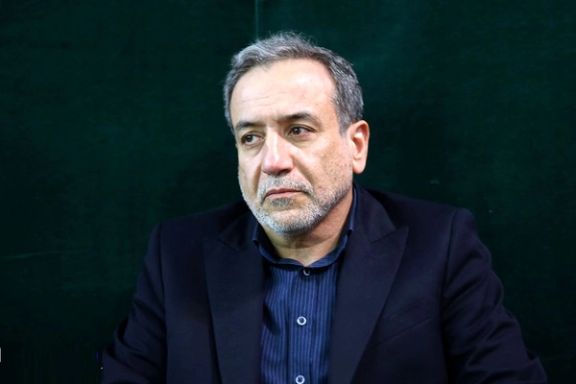
Iran's foreign minister on Saturday expressed Tehran's preparedness for the resumption of negotiations over its nuclear program but warned that the window will remain open for a limited period of time.
Abbas Araghchi told the state television that Iran is fully prepared for negotiations on its nuclear program and believes a deal is achievable through diplomacy.
"We believe the window for diplomacy is still open, albeit for a short time, provided the other parties demonstrate genuine willingness. Without such commitment, we will pursue an alternative course," he warned.
The 'short period of time' Araghchi mentioned refers to October 2025, when most restrictions against Tehran's nuclear program will be removed under the UN Security Council Resolution 2231, and the West will no longer be able to apply “snapback” sanctions.
Araghchi said the European powers will most probably try to use the snapback mechanism to restore sanctions against Iran over the next year. "The Iranian nuclear program's trajectory in the coming year will be challenging and sensitive, but we are prepared for any scenario. If confrontation becomes inevitable, we are ready to face it. Similarly, if cooperation is possible, we are prepared to embrace that path as well."
Earlier on Thursday, Iran's President Masoud Pezeshkian said in a meeting with IAEA Director General Rafael Grossi that Tehran was prepared to cooperate with the UN nuclear watchdog to clear up "alleged ambiguities about the peaceful nuclear activity of our country".
Iran preparing for Trump's 'maximum pressure'
Araghchi's Saturday remarks came hours after the Financial Times reported that Donald Trump’s incoming administration plans to revive its “maximum pressure” policy to “bankrupt” Iran’s capacity to support its so-called Axis of Resistance and pursue nuclear development.
Trump’s team is preparing executive orders for his first day in office that would tighten existing sanctions and introduce new ones on Iran’s oil exports, the FT report said citing unnamed sources.
Araghchi said on Saturday it was too early to analyze the Trump administration's approach to the Islamic Republic, but Tehran will adjust its behavior according to their actions.
He also noted the people nominated by Trump for the new US administration have a "radical tendency" in supporting Israel.
Araghchi also referred to a New York Times report about a meeting between Trump's close ally, Elon Musk, and the Iranian envoy to the United Nations, and called it a fabricated scenario possibly aimed at testing Iran's reaction.
The foreign minister said no Iranian official has met Elon Musk. When asked about Tehran's delay in dismissing the report, Araghchi explained that the NYT story was published at 01:00 a.m. (Iran time). Upon waking and seeing the report, he initially thought it didn’t warrant a response. He then waited for Iran’s UN envoy in New York to wake up and inquired why they hadn’t denied it. "They replied, 'We thought it was too insignificant,'" Araghchi told state TV.
The initial report by the New York Times raised significant questions about President-elect Trump's Iran policy, specifically whether he plans to intensify pressure on Tehran or pursue dialogue to ease tensions in the Middle East.
The Associated Press, quoting an unnamed American official, confirmed that the talks, held on November 12, were requested by the Islamic Republic, while the initial report had said the request came from Musk.
According to reports, the discussion spanned key geopolitical issues, including Iran’s nuclear program, its regional alliances with proxies, and the possibility of reducing tensions with the United States.
While Tehran is dismissing the reports, neither Elon Musk nor Trump's team has refuted the report, indicating that it could be an early move by the incoming administration to establish communication and engage with the Islamic Republic.
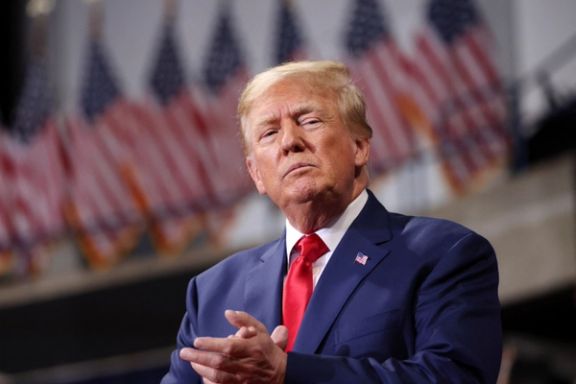
Tehran’s firebrand Kayhan daily rejected a Wall Street Journal report that Iran had provided written assurances to the Biden administration not to target Donald Trump, asserting that no such guarantees could ever be made.
“What reasonable mind could conceive that Iran would offer guarantees against holding the perpetrators of Martyr Soleimani’s assassination accountable?” the ultra-hardline daily, whose managing editor Hossein Shariatmadari is an appointee of Supreme Leader Ali Khamenei, asked on Friday.
"No one in Iran can absolve the criminal Trump or offer assurances to the Americans that the killers of Martyr Soleimani will not face punishment. Additionally, alongside the pursuit of retribution by the Iranian nation and the Islamic Republic, other nations and resistance groups in the region and around the world are also seeking justice for the blood of Martyr Soleimani..." Kayhan wrote.
Qasem Soleimani, the former commander of the IRGC's Quds Force, was killed in a 2020 US drone strike near Baghdad International Airport on orders from then-President Donald Trump. This act has made Trump and his aides targets of alleged Iranian retaliation plots.
Kayhan issued a veiled threat on Friday, writing: “While some may label Trump a fool, it is unlikely that he is so oblivious as to fail to understand that no guarantees exist to shield him from accountability and retribution.”
Kayhan's statements come at a time when there are reports of a meeting between Trump's ally Elon Musk and Iran's UN envoy in New York earlier this week. Other Iranian newspapers criticized Kayhan for potentially jeopardizing efforts to reduce tensions with the US.
Iranian officials on numerous occasions since 2020 have issued threats against Trump and top officials of his first administration, such as former CIA Director Mike Pompeo and National Security Chief John Bolton.
Details of one such alleged plot emerged last week when the US Justice Department unsealed murder-for-hire charges against Farhad Shakeri, a 51-year-old Afghan national accused of being connected to Iran’s Islamic Revolutionary Guard Corps in a plan to target Trump.
According to the Wall Street Journal, Iran had sent written assurances to the Biden administration last month, denying any intent to assassinate Trump. This communication responded to a private American warning issued in September, highlighting the administration’s stance that threats against Trump would represent aggression against the United States.
US officials underlined that any attempt on Trump’s life would be treated as an act of war, aligning with the administration’s public position, the Wall Street Journal wrote.
Kayhan’s editorial diverged from the Iranian government’s official position, which had already dismissed accusations of a plot to assassinate Trump as fabricated. Last week, the Iranian Foreign Ministry spokesman described the allegations as “suspicious, malicious, and baseless.”
In response, Kayhan questioned: “The idea that Iran’s alleged assassination plot against Trump is false and that the referenced report is baseless is true. But why is assassinating Trump considered a malicious act? Eliminating the murderer of Martyr Soleimani, Martyr Abu Mahdi, and countless other oppressed people is a noble, righteous, and necessary act—not a malicious one.”
The daily later softened its tone, noting that the Foreign Ministry had explained the use of the word “malicious” differently, seemingly clearing up the misunderstanding.
Since Trump’s election in 2016, Iranian politicians have been divided over how to address his tough stance on Iran. Some have advocated for diplomacy, while others have leaned toward strong defensive strategies, including nuclear deterrence.
Meanwhile, sources cited by Financial Times on Saturday revealed that Trump’s incoming administration plans to revive its “maximum pressure” campaign to cripple Iran’s ability to fund regional proxies and develop nuclear weapons. The team intends to tighten sanctions on Tehran, particularly its vital oil exports, immediately after taking office.